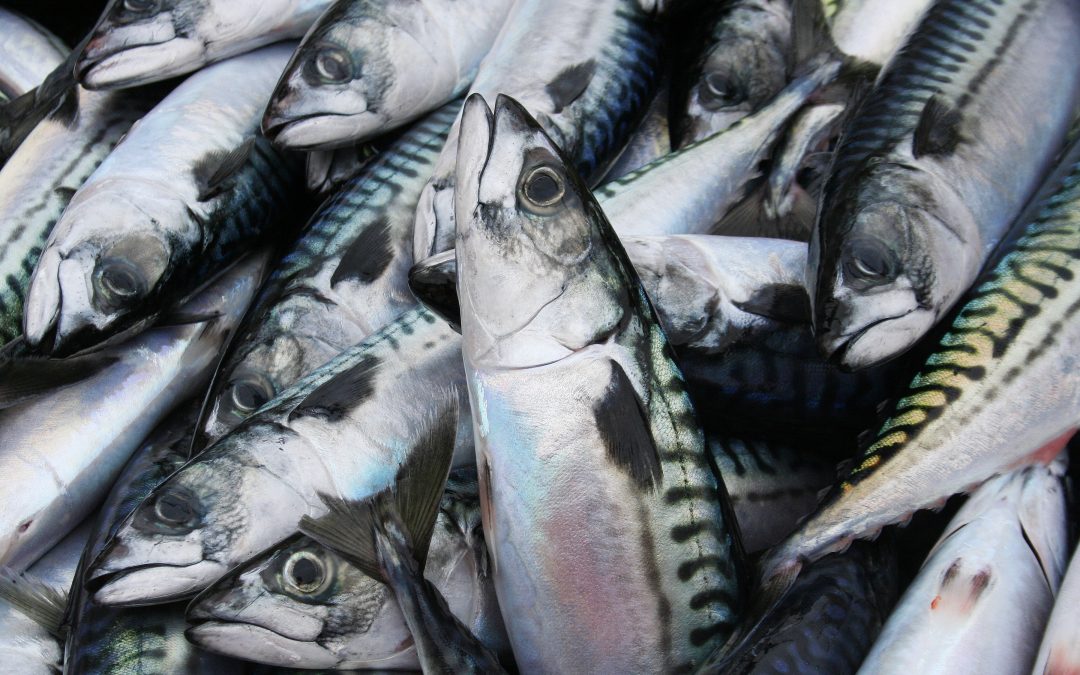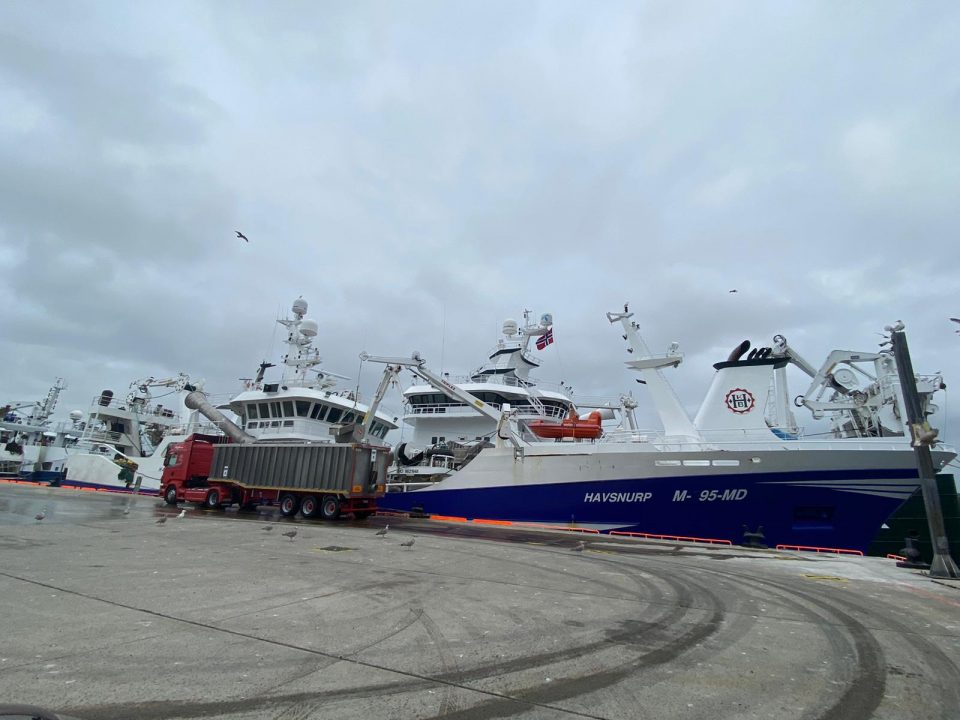EU fishing organisations have called for immediate sanctions to be imposed to stop Norway and the Faroe Islands from their “massive overfishing” of the Northeast Atlantic mackerel stock
Irish and EU Fishermen are especially concerned by Norway’s and the Faroes decision to unilaterally allocate itself a 55% increase in quota this year for a stock that straddles international waters.
Europêche is urging the European Commission and European Council to act swiftly and decisively on what it calls “reckless and irresponsible behaviour,” by using instruments at its disposal including trade measures and the Illegal, Unreported and Unregulated (IUU) Fishing Regulation.
Earlier this year, Norway and the Faroes unilaterally increased their share in the mackerel fishery by 55 percent each. Europêche said that now the Norwegian and Faroese fleets, as well as those of Iceland, Russia, and Greenland are targeting mackerel with as many vessels as possible. It said this is possible because to a large extent, the fisheries also take place in international waters.
“If this effort continues with the coastal states fully utilizing their inflated, unjustified quota shares, the total mackerel catch will be 42 percent higher than the scientific advice that was agreed to by all parties in November 2020” Gerard van Balsfoort, chair of the E.U. pelagic industry organized under the banner of EAPO and Europêche, said.
Irish Industry View
Lack of capacity at Norwegian processors and the decision by Iceland to refuse Norwegian landings has forced the Norwegian fleet to seek other outlets for their Mackerel catches.
Two Norwegian vessels recently landed their catch to a Killybegs processor and this led to calls by Donegal fishermen for the banning of landings by Norwegian vessels into Irish Ports .
While there have been many landings into Killybegs previously by vessels from Norway, this has mainly been Blue Whiting caught off the west coast of Ireland and not Mackerel caught far north off the Norwegian coast.
Sean O’ Donoghue, CEO of the KFO told The Skipper
“The KFO with its European Pelagic fishing industry is calling for immediate EU action to stop Norway and Faroe Islands in their massive overfishing of the Northeast Atlantic mackerel stock. We reiterate our call of last May on the EU Commission and Council to act swiftly and decisively on this reckless and irresponsible behaviour by using the instruments at its disposal such as trade measures and the IUU regulation. The Norwegian mackerel landings into Killybegs are only adding and abetting this reckless and irresponsible behaviour by Norway which is not acceptable and KFO is very disappointed that this has been facilitated.”
“The EU cannot and should not let this form of extreme overfishing continue by these coastal states which is contrary to the UN Convention on the Law of the Sea and particularly the 1995 Straddling Stocks Agreement. It is incredible that at the same time as acting in such an irresponsible manner they portray themselves to be sustainable and responsible nations. There is no way Norway can defend itself for taking almost 300,000 tons or 35% of the scientifically advised total mackerel quota of 852,000 tons. Norway happily continues to export huge amounts of their seafood, including farmed salmon, to the EU market as if this is business as usual. The EU must immediately start using its power as the world’s largest import market for seafood and take action to stop such reckless and irresponsible behaviour.”
CEO of IFPEA Brendan Byrne speaking to The Skipper said:
“The IFPEA welcomes the landing of fish from any vessel, from any country into Ireland, it is critically important for the fish fishing industry that we facilitate landings and in turn we are allowed to land into other countries. I recently addressed this very matter at a meeting with the SFPA along with all four PO’s namely the KFO. IFPO , ISWFPO and the ISEPO when they and I agreed the future need to have Ireland as a country that can attract vessels from other coastal states to land fish into our country.”
“The IFPEA will always be progressive in promoting the Irish Fish industry, and in that context the Norwegian vessels are especially welcome to Killybegs, it is particularly a welcome development after many years of Killybegs vessel owners doing business in Norway.”
“The reality of the Irish Fish processing industry is we are an immovable object – we depend on fish coming to us – so we must be mindful with the TCA/Brexit cuts – which are real and reoccurring over the next 5 years, additionally sourced fish will be needed in order that we remain capable of meeting existing processing capacity never mind additional growth in the years ahead . Ireland must reach out otherwise we will only further isolate ourselves”, concluded Brendan Byrne.
John Lynch, CEO, ISEFPO also called for swift action by the EU to curb the Norwegian stock grab
“The ISEFPO and its members are asking the European Commission to take immediate action against Norway and the Faroe Islands to stop their unilateral decision to over fish the shared North East Atlantic Mackerel stock.”
“In May this year Norway and the Faroe Islands announced their intention to unilaterally increase their share of the mackerel quota by 55% and others will most likely follow suit. This will result in a massive over-fishing of the mackerel stock with Norway taking almost 300,000 and the scientific advice being exceeded by up to 42% above what was agreed by the coastal states last November. This behaviour is not acceptable from countries that promote themselves as responsible and sustainable.”
“Norwegian vessels have recently landed some of this mackerel into Ireland and the ISEFPO does not support this activity.”
“The European Union provides Norway with its most important market for its fishery products such as salmon and whitefish. The ISEFPO are calling on the European Union to act now and introduce trade sanctions on these imports to stop this illegal activity.”
Patrick Murphy CEO of the Irish South and West FPO speaking on behalf of his Organisations board of Directors agree the share of share fish stocks should be governed under the United Nations Law of the Sea UNCLOS also known as zonal attachment, however this cannot be determined by an individual coastal state choosing to apply it to one stock and not another.
He Said “To ensure a level playing pitch the rules must be agreed by all and once agreed by all should only be changed in a consensus of all.”
“If we all are serious in protecting the future of our fishing Industries by protecting the sustainability of the wild stock we hunt, catch and land for our people to enjoy, we cannot accept rogue coastal states decisions that would jeopardise these agreements.”
“Any Coastal state’s interruption of data carried out in a way that suits them alone, self-justification to take a greater share in one stock but then they ignoring the same data when it could result in a decrease in another stock is simply wrong.”
“This action will only divide us, and ultimately damage the precious fish stocks we all share leading to a future loss of the opportunity for ALL.”
Norwegian Reaction
The Norwegian Fishing Vessels Owners Association (Fiskebåt) has informed The Skipper that all recent Mackerel catches were caught in the Norwegian Zone.
They stated:
“The Norwegian claim of 35 percent of the total quota for mackerel in 2021 was set on the basis of mackerel’s zonal attachment.”
“Scientific surveys show that a large part of the mackerel stock is within Norwegian waters, and 35 percent is therefore a fair claim.”
“For 2021, we were not able to prolong the agreement from 2014 between EU, the Faroe Islands and Norway, when the United Kingdom tried to make Norwegian fishing vessels pay for access to UK waters. The Norwegian share in the agreement from 2014 already reflected access to the different parties’ zones,” says Audun Maråk from The Norwegian Fishing Vessels Owners Association (Fiskebåt).
“It is totally wrong that the Norwegian fishing fleet is fishing the mackerel in international waters. Close to 100 percent of the mackerel in 2021 has been fished in the Norwegian economic zone.”
“Iceland, Russia, Greenland and the Faroe Islands have fished almost their entire mackerel quotas in international waters.”



Recent Comments